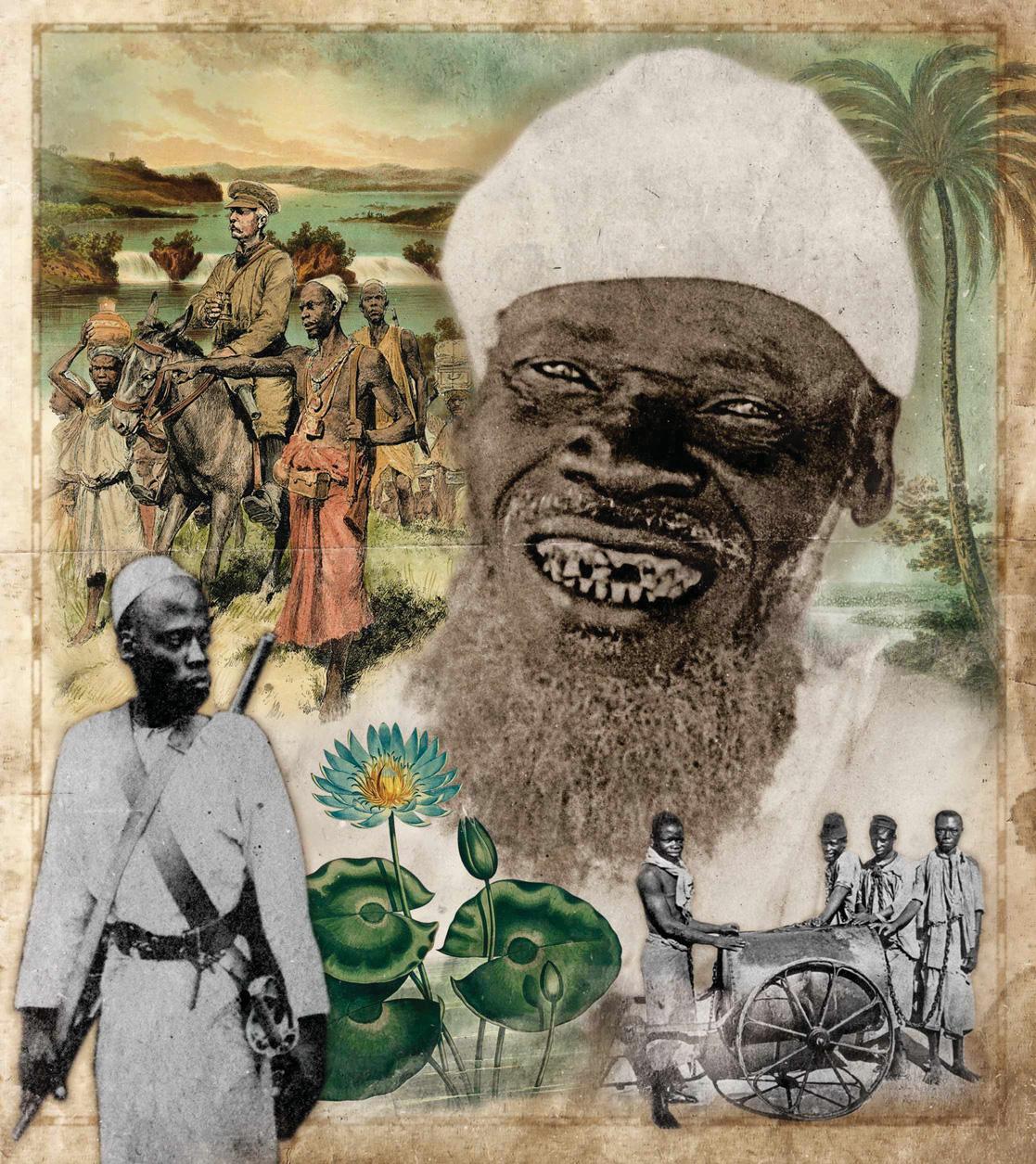
Sidi Mubarak Bombay never forgot the moment he lost everything. It was the early 19th century, and he was just a child living in a remote village in the Yao territory of east Africa, which today lies on the border between Tanzania and Mozambique. He never knew his mother, who died soon after he was born, but he had a father, a family, friends, a home. All were taken from him when, as he later recalled with moving candour, a large group of men “equipped with sword and gun, came suddenly”.
These were not strangers. They had been there before, offering goods that they knew the villagers could ill afford. The Yao, Bantu-speaking peoples of east and central Africa, were far from naive: they were sophisticated agriculturalists, highly skilled ironsmiths and experienced traders. They had long worked with the Arabs, bringing ivory and enslaved people from the interior to the coast to sell to them. Bombay’s village, however, was inland and isolated, allowing its inhabitants little interaction with the outside world, and leaving them vulnerable to the traps that slave traders patiently laid.
Upon their return to Bombay’s village, the men “demanded of the inhabitants instant liquidation of their debts… or stand the consequence of refusal”. No wealthier now than they had been when they incurred the debts, and with no guns to defend themselves, the villagers had only one hope: to run. “The whole village,” Bombay remembered, “took to precipitate flight.”
This story is from the {{IssueName}} edition of {{MagazineName}}.
Start your 7-day Magzter GOLD free trial to access thousands of curated premium stories, and 9,000+ magazines and newspapers.
Already a subscriber ? Sign In
This story is from the {{IssueName}} edition of {{MagazineName}}.
Start your 7-day Magzter GOLD free trial to access thousands of curated premium stories, and 9,000+ magazines and newspapers.
Already a subscriber? Sign In
A modern icon
IVWWAN MORGAN lauds an insightful and clear-eyed examination of a leader blessed with charisma and quality but also marred by personal flaws

Shipwrecks on Scilly
Beneath the clear waters of the Isles of Scilly lurk treacherous rocks on which more than 1,000 ships have foundered. CLARE HARGREAVES discovers their stories

Medieval sambocade
ELEANOR BARNETT recreates an early cheesecake - a dish with surprisingly long roots stretching back well over two millennia

Greek drama
LLOYD LLEWELLYN-JONES is swept along by an engaging exploration of the Ptolemaic rulers of Egypt in the final centuries before Rome conquered this ancient land

Unravelling the enigma
JOSEPH ELLIS is impressed by a detailed, colourful and insightful biography of George Villiers, a Stuart royal favourite who made powerful enemies

The Elusive Pimpernel
Some suffragettes marched with banners, or printed and distributed propaganda pamphlets. Others took more direct action. DIANE ATKINSON tells the story of one activist who employed arson to spark awareness of the burning issue of women’s suffrage

A HILL TO DIE ON
In early 1944, the Allied advance in Italy was brought to a halt at a rocky outcrop called Monte Cassino. And at the heart of the bloodbath that followed, writes James Holland, was flawed leadership

How to build a radical
How to build a radical 6 8 The experiences that shaped Guy Fawkes and his gunpowder plot co-conspirators into violent extremists seem all too familiar today. Lucy Worsley tells a story of religious clashes, state-sanctioned torture and comrades-in-arms willing to die for the cause

WHO WAS GREATEST THE US PRESIDENT?
With Donald Trump set to be inaugurated as the 47th president, we asked seven historians to nominate their choice for the most accomplished American leader

Land of make believe?
Marco Polo's adventures in Asia earned him everlasting fame. But are his accounts of his travels essentially works of fiction? Peter Jackson asks if we can trust this medieval travel-writing superstar